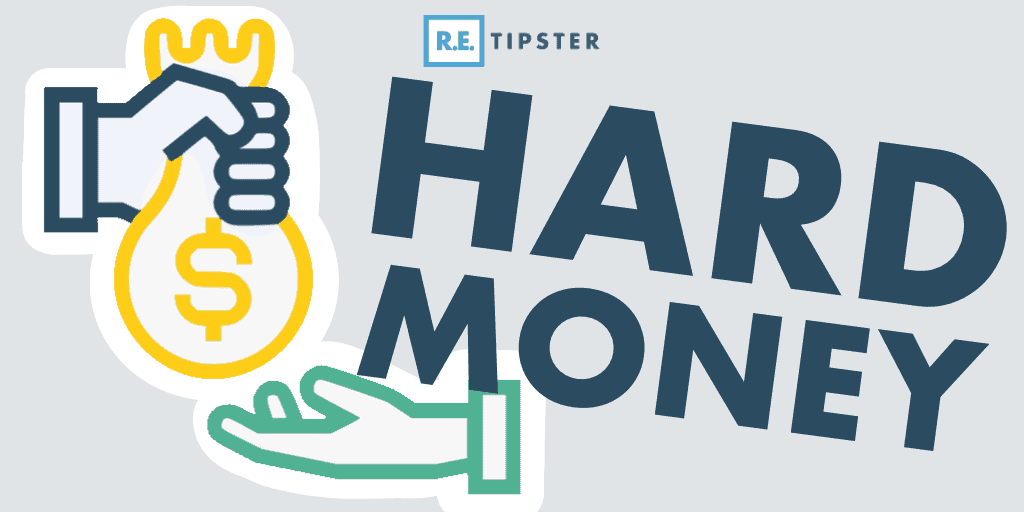
When you hear the words “hard money loan” (or “private money loan”) what’s the first thing that goes through your mind?
Shady-looking lenders who conduct their business in dark alleys and charge sky-high interest rates?
In prior years, some bad apples tarnished the hard money lending industry when a few predatory lenders were attempting to “loan-to-own”, providing very risky loans to borrowers using real estate as collateral and intending to foreclose on the properties. Luckily, these types of hard money lenders don’t exist in today’s market, although some residual stigma remains for some real estate investors who haven’t recently utilized the services of a reputable hard money lender.
In this article, we will go over the basics of hard money loans, including:
- What hard money loans are all about.
- The types of properties and deals hard money loans are appropriate for.
- What kind of interest rates and loan to value ratios to expect.
- Standard requirements of the borrower.
- Where to find an experienced hard money lender to work with.
What is a Hard Money Loan?
A hard money loan is simply a short-term loan secured by real estate. They are funded by private investors (or a fund of investors) as opposed to conventional lenders such as banks or credit unions. The terms are usually around 12 months, but the loan term can be extended to longer terms of 2-5 years. The loan requires monthly payments of only interest or interest and some principal with a balloon payment at the end of the term.
The amount the hard money lenders are able to lend to the borrower is primarily based on the value of the subject property. The property may be one the borrower already owns and wishes to use as collateral or it may be the property the borrower is acquiring.
Hard money lenders are primarily concerned with the property’s value rather than the borrower’s credit (although credit is still of some importance to the lender). Borrowers who cannot get conventional financing due to a recent foreclosure or short sale can still obtain a hard money loan if they have sufficient equity in the property that is being used as collateral. When the banks say “No”, the hard money lenders can still say “Yes”.
RELATED: Need Money? You Need to Know About Fund & Grow
Property Types for Hard Money Loans
A borrower can get a hard money loan on almost any type of property – including single-family residential, multi-family residential, commercial, land, and industrial.
Some hard money lenders may specialize in one specific property type such as residential and not be able to do land loans, simply because they have no experience in this area. Most hard money lenders have a specific niche of loan they are most comfortable with. Ask them upfront which type of loans they are willing and able to do.
Many hard money lenders will not lend on owner-occupied residential properties due to the extra rules and regulations (thanks Dodd-Frank!) but there are those who are willing to wade through the paperwork with the borrower. All hard money lenders will do loans in 1st position, while fewer will do 2nd position due to the increased risk for the lender.
What Types of Deals Should Hard Money Loans Be Used For?
Hard money loans are not appropriate for all deals. When purchasing a primary residence with good credit, income history, and there are no issues such as a short sale or foreclosure, conventional financing through a bank is the best way to go if the borrower still has time to go through the lengthy approval process required by a bank. Hard money is your source of financing when banks are not an option or the loan is needed in a short period of time.
Hard money loans are ideal for situations such as:
- Fix and Flips
- Land Loans
- Construction Loans
- When the Buyer has credit issues.
- When a real estate investor needs to act quickly.
Who Should Use a Hard Money Loan?
Real estate investors choose to use hard money for many different reasons. The main reason is the ability of the hard money lender to fund the loan quickly. In most situations, hard money loans can be funded within a week. Compare that to the 30 – 45 days it takes to get a bank loan funded. The application process for a hard money loan generally takes a day or two and in some cases, a loan can be approved the same day. Good luck hearing back about a loan approval from your bank within the same week!
The ability to obtain funding at a much faster rate than a bank loan is a significant advantage for a real estate investor. Especially when the real estate investor is trying to acquire a property with many competing bids, a quick close with a hard money loan will get a seller's attention and set their offer apart from the rest of the buyers offering slow conventional financing.
Another reason a borrower may choose to use a hard money loan is that they have been rejected by the banks for a conventional loan. Life doesn’t always go as planned. Short sales, foreclosures, credit issues… they happen. Another important thing banks need to see is income history. If a potential borrower recently started a new job, the bank may deny the loan request due to insufficient income history, even if the borrower makes a healthy income. Hard money lenders are able to look past these issues as long the loan be repaid and the borrower has enough equity invested in the property.
Interest Rates and Points for Hard Money Loans
The interest rates and points charged by hard money lenders will vary from lender to lender and will also vary from region to region. For example, hard money lenders in California generally have lower rates than other parts of the country since California has many hard money lending firms. Increased competition leads to a decrease in prices.
Hard money lenders take on more risk with their loans compared to a conventional bank loan. Due to this higher risk involved on a hard money loan, the interest rates for a hard money loan will be higher than conventional loans. Interest rates for hard money loans range from 10 – 15% depending on the specific lender and the perceived risk of the loan. Points can range anywhere from 2 – 4% of the total amount loaned. The interest rates and points may vary greatly depending on the loan to value ratio.
Hard Money Loan to Value Ratios
The loan amount the hard money lender is able to lend is determined by the ratio of the loan amount divided by the value of a property. This is known as the loan to value (LTV). Many hard money lenders will lend up to 65 – 75% of the current value of the property. Some lenders will lend based on the after repair value (ARV) which is the estimated value of the property after the borrower has improved the property. This creates a riskier loan from the hard money lender’s perspective because the amount of capital put in by the lender increases and the amount of capital invested by the borrower decreases. This increased risk will cause a hard money lender to charge a higher interest rate.
There are some hard money lenders who will lend a high percentage of the ARV and will even finance the rehab costs. This may sound great from the borrower’s point of view to begin with, but these types of loans have a much higher risk involved and the interest rate and points will be MUCH higher. Expect 15 – 18% interest and 5 – 6 points when a lender funds a loan with little to no down payment from the borrower. In some cases, it may be worthwhile for the borrower to pay these exorbitant rates in order to secure the deal if they can still generate profit from the project.
Borrower Requirements for Hard Money Loans
As discussed earlier, hard money lenders are primarily concerned with the amount of equity the borrower has invested in the property that will be used as collateral. They are less concerned with the borrower’s credit rating. Issues on a borrower’s record such as a foreclosure or short sale can be overlooked if the borrower has the capital to pay the interest on the loan.
The hard money lender must also consider the borrower’s plan for the property. The borrower must present a reasonable plan that shows how they intend to ultimately pay off the loan. Usually, this is improving the property and selling it or obtaining long-term financing later on.
Finding a Hard Money Lender to Work With
There are many different ways to find a reputable hard money lender. One easy way to find a local hard money lender is to search Google for [your area] + “hard money lenders”. There will be individual companies in the search results as well as lists of hard money lenders compiled by others. This will provide a good amount of lenders to begin contacting and evaluating.
Another way to find a hard money lender is by attending your local real estate investor club meeting. These club meetings exist in most cities and are usually well-attended by hard money lenders looking to network with potential borrowers. If no hard money lenders are present at the meeting, ask other real estate investors if they have a hard money lender they can recommend. Real estate brokers, conventional mortgage brokers and other real estate professionals may be able to refer an experienced hard money lender. Leverage your existing network and see who is most recommended.
Once a list of a few lenders has been compiled, it’s time to start contacting them and finding the most suitable lender to fund your next deal.
Conclusion
Hopefully, this article has armed you with enough knowledge and confidence to consider a hard money loan to fund one of your future real estate deals. The higher interest rates may seem scary at first, but the benefits of getting a loan funded quickly and being able to obtain financing when all the banks have said “No” will far outweigh the extra cost.

North Coast Financial, Inc. is a hard money lender in San Diego, California with 35 years of experience in lending on properties throughout Southern California. For more information on our loan programs or to inquire about a loan please contact Don Hensel.
[email protected] 760-722-2991
















